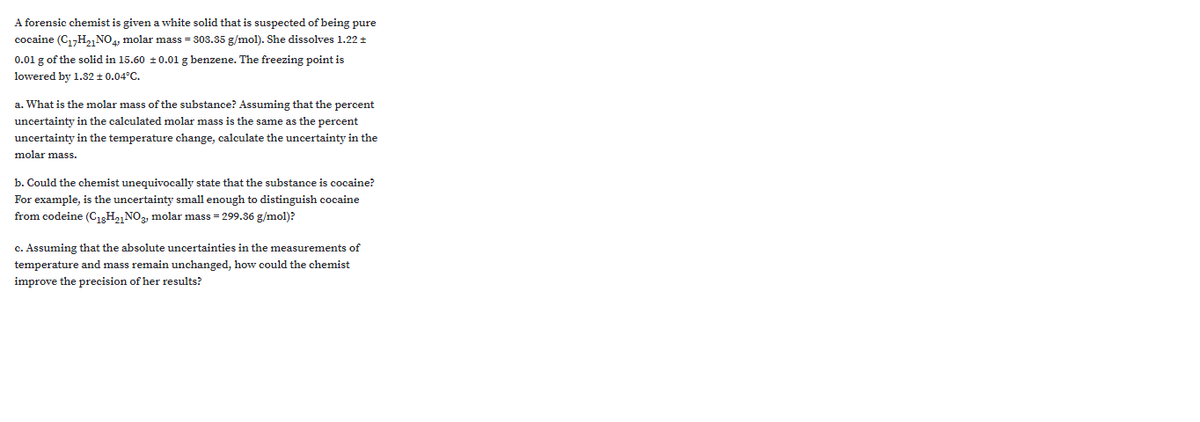A forensic chemist is given a white solid that is suspected of being pure cocaine (C1,H2,NO4, molar mass = 303.35 g/mol). She dissolves 1.22 + 0.01 g of the solid in 15.60 ±0.01 g benzene. The freezing point is lowered by 1.32 + 0.04°C. a. What is the molar mass of the substance? Assuming that the percent uncertainty in the calculated molar mass is the same as the percent uncertainty in the temperature change, calculate the uncertainty in the molar mass. b. Could the chemist unequivocally state that the substance is cocaine? For example, is the uncertainty small enough to distinguish cocaine from codeine (C13H,, NO, molar mass = 299.36 g/mol)? c. Assuming that the absolute uncertainties in the measurements of temperature and mass remain unchanged, how could the chemist improve the precision of her results?
A forensic chemist is given a white solid that is suspected of being pure cocaine (C17H21NO4 , molar mass = 303.35 g/mol). She dissolves 1.22 ± 0.01 g of the solid in 15.60 ± 0.01 g benzene. The freezing point is lowered by 1.32 ± 0.04°C.
a. What is the molar mass of the substance? Assuming that the percent uncertainty in the calculated molar mass is the same as the percent uncertainty in the temperature change, calculate the uncertainty in the molar mass.
b. Could the chemist unequivocally state that the substance is cocaine? For example, is the uncertainty small enough to distinguish cocaine from codeine (C18H21NO3, molar mass = 299.36 g/mol)?
c. Assuming that the absolute uncertainties in the measurements of temperature and mass remain unchanged, how could the chemist improve the precision of her results?

Trending now
This is a popular solution!
Step by step
Solved in 2 steps with 5 images









